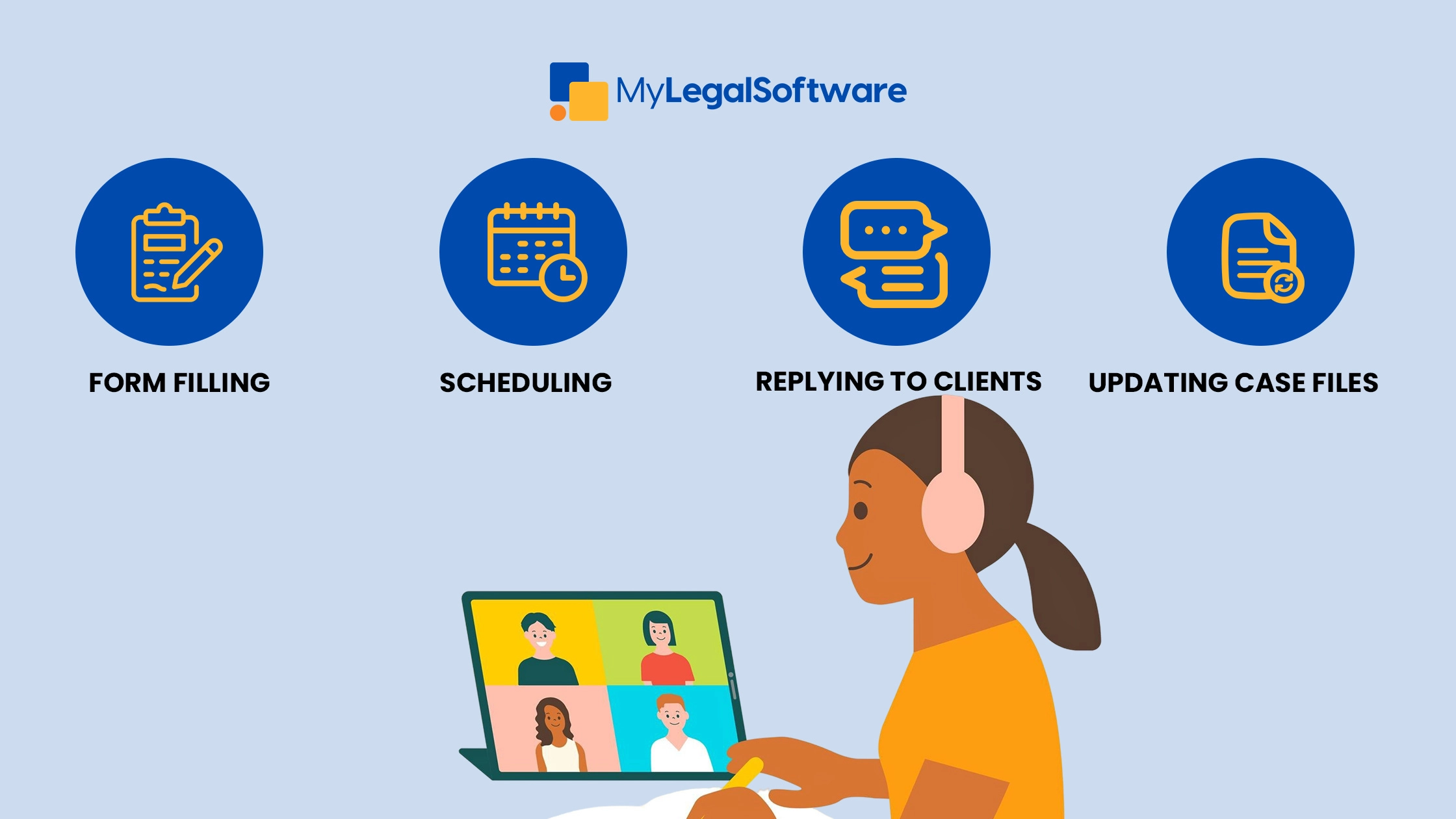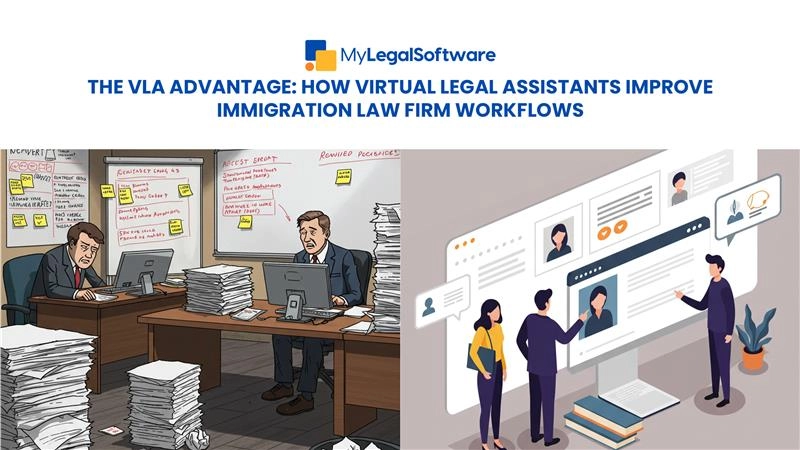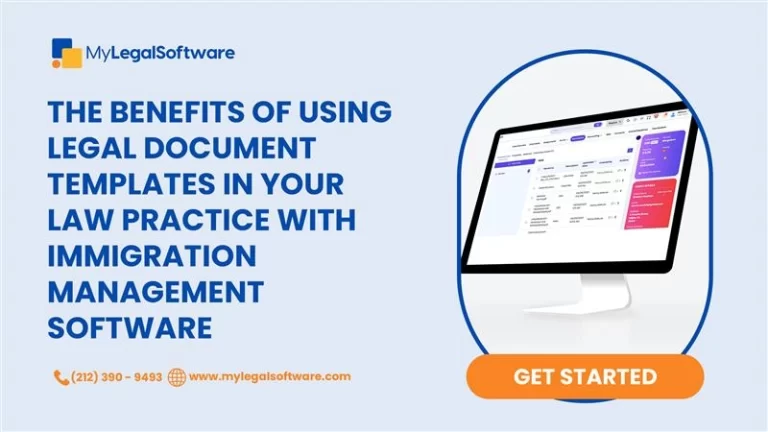In an industry where time is money and accuracy is non-negotiable, the legal sector is embracing a silent but powerful revolution — Virtual Legal Assistants (VLAs). From solo immigration attorneys to bustling legal firms, these digital and remote professionals are transforming how law offices operate, communicate, and grow. But how exactly are they doing this?
Whether you’re a legal tech user, an immigration paralegal, or a firm owner looking to reduce overhead while increasing productivity, this guide will walk you through how virtual legal assistants are redefining legal operations, especially with the rise of immigration case manager software and legal client management platforms.
What Is a Virtual Legal Assistant?
A Virtual Legal Assistant is a remote professional or AI-powered tool trained to perform administrative and legal support tasks such as:
- Managing case files
- Client onboarding and communication
- Calendar and deadline tracking
- Legal research
- Document drafting or formatting
- Using legal case tracking platforms
These assistants can either be human contractors working remotely or software-based virtual assistants powered by AI and automation. For law firms juggling increasing caseloads, especially in fast-paced areas like immigration law, virtual legal assistants have become invaluable.
Why Are Law Offices Embracing Virtual Legal Assistants?
1. Cost Efficiency and Scalability
Hiring full-time, in-office staff can be expensive. VLAs offer flexibility and allow law offices to scale support based on workload without the overhead of employee benefits, office space, or hardware. Firms that adopt legal client management software often find it easier to onboard VLAs seamlessly into their operations.
2. Enhanced Productivity and Faster Turnaround
VLAs support attorneys by handling time-consuming administrative tasks, freeing legal professionals to focus on billable work. In immigration law, where quick turnaround times can impact client status, tools like immigration tracking software help VLAs streamline workflows efficiently.
3. Round-the-Clock Availability
With access to global talent or AI-powered tools, some virtual assistants offer 24/7 coverage—ideal for urgent filings, client follow-ups, and managing international clientele in immigration cases.
How Immigration Law Firms Are Using Virtual Legal Assistants
Immigration law is fast-paced, complex, and bound by strict timelines. From family-based petitions to employment visas, each case demands precision and ongoing coordination. That’s where Virtual Legal Assistants (VLAs) come in — equipped with specialized tools like immigration case manager software and legal case tracking platforms, they help immigration law firms function with greater speed, accuracy, and efficiency.

Case File Management
VLAs use platforms like Docketwise, INSZoom, or PrimaFacie to organize, update, and track immigration case files. These tools allow assistants to:
- Auto-fill USCIS forms with stored client data
- Set up alerts for RFE deadlines, biometrics appointments, and interview dates
- Ensure proper documentation is collected, named, and stored systematically
- Avoid redundancy by centralizing all communications, forms, and updates in one place
This eliminates guesswork and helps lawyers stay ahead of compliance deadlines.
Client Communication
Virtual legal assistants often serve as the first point of contact for clients, ensuring regular communication and clarity. With secure client management software, they:
- Respond to frequently asked questions about case status
- Send reminders for pending documents or appointments
- Schedule attorney consultations efficiently
- Guide clients through form-filling instructions or portal usage
This keeps clients engaged and confident in their legal process while freeing attorneys from non-billable interactions.
Workflow Automation
Using legal case tracking platforms, VLAs automate repetitive tasks such as:
- Sending case status updates and form notifications
- Generating pre-written client messages
- Creating task checklists for each immigration process (e.g., H-1B petition or family-based adjustment of status)
- Syncing deadlines across calendars for paralegals, attorneys, and clients
Automation ensures no step is missed and significantly reduces administrative overhead
Key Tools Empowering Virtual Legal Assistants
To work effectively, VLAs rely on integrated tech stacks. Top tools include:
- Immigration Software for Paralegals like LawLogix and PrimaFacie that streamline form preparation and compliance checks.
- Legal Client Management Software such as MyLegalSoftware, which centralizes case documents, messages, and tasks.
- Immigration Tracking Software that provides real-time alerts for client milestones and deadlines.

These tools ensure remote assistants stay aligned with in-house legal teams, delivering consistent and quality service.
Are Virtual Legal Assistants Secure?
Yes, when equipped with the right security protocols and access controls. Reputable platforms integrate encryption, two-factor authentication, and compliance with data protection regulations like GDPR and HIPAA.
Law offices should:
- Use client portals within their legal client management software
- Provide role-based access to case files
- Require NDAs and conduct routine audits with human VLAs
Challenges and Solutions in Adopting Virtual Legal Assistants
| Challenge | Solution |
| Trust and Confidentiality | Vet thoroughly, use NDAs, and leverage secure tech |
| Workflow Integration | Use compatible platforms (e.g., immigration software for paralegals) |
| Training Needs | Offer SOPs and role-based training via your case tracking platform |
Future of Law Office Dynamics: A Hybrid Legal Workforce
The rise of virtual legal assistants points to a future where law offices run leaner, smarter, and more globally. Remote legal support will increasingly pair with AI-driven automation—optimizing both client satisfaction and operational efficiency.
Virtual Legal Assistants are no longer a luxury—they’re a necessity in modern legal practice, particularly in immigration law where digital tools and timely management can make or break a case. With the right immigration tracking software and legal client management systems, law firms can embrace this shift without sacrificing quality, confidentiality, or control.
Frequently Asked Questions (FAQs)
What does a virtual legal assistant do in immigration law?
How can I integrate a virtual legal assistant into my firm?
Is virtual legal support secure for confidential casework?
They manage case timelines, prepare documents, communicate with clients, and use specialized software to track visa applications and USCIS form statuses.
Start with tools like immigration case manager software, define their role, grant limited access, and use cloud-based platforms for collaboration.
Yes, when you use secure platforms and enforce strong protocols like encrypted communication, NDAs, and role-specific data access.








